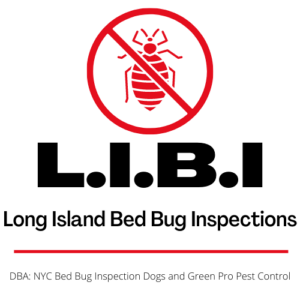The introduction of powerful and effective pesticides in the middle of the 20th century substantially reduced the incidence of bed bug infestations across the United States. So effective were these pesticides that generations of Americans grew up never encountering one of these blood-sucking parasites.
But as international travel became more common, and toxic insecticides were retired use, bed bugs began to return to our homes and businesses. Today, at least one out of every five Americans have had a bed bug infestation in their home or workplace. These infestations are not only costly, they may have a troublesome effect on the mental health and well-being of victims and their families.
A Crash Course in Bed Bugs
The common bed bug (Cimex lectularius) has plagued human beings for thousands of years. They are parasitic pests who survive by keeping in close contact with their primary hosts – humans like you and me.
Bed bugs had all but disappeared from most developed countries until the early 1990s. Changes in pest control practices and growing restrictions on pesticides allowed for a resurgence in bed bug infestations around the world. Today, they have become a major urban pest.
Bed bugs are typically less than a quarter of an inch long, oval-shaped, and flat. Adults are rust colored while nymphs (baby bed bugs) have a yellowish tint. These parasitic pests hide in cracks, crevices, and mattresses. They only come out of hiding to feed on their unsuspecting hosts. Afterwards they head back to their hiding places to mate and lay eggs. The bed bugs’ rate of reproduction is remarkable, and can lead to a full scale infestation in less than two months.
The Health Implications of a Bed Bug Infestation
The role bed bugs play in the transmission of human diseases has been the subject of close study for more than half a century. These studies have shown that, with very few exceptions, there is little evidence to support the idea that bed bugs transmit human pathogens.
Having said that allergic reactions to bed bug bites are not uncommon. In fact, the typical reaction to being bitten by bed bugs (rash, itchiness, skin irritations) is itself a kind of allergic reaction. Some people may have more violent reactions than others, leading to hives, blistering or other complex skin reactions. In these rare cases medical assistance may be required.
However, in the vast majority of cases bed bug bites typically result in itchy red spots at feeding sites and an annoying itching and inflammation of the effected areas.
Emotional And Psychological Impact of Bed Bug Attacks
Bed bugs may not have a direct link to physical illness but that doesn’t mean they can’t have a significant impact on our mental health. Being subjected to a bed bug infestation can often trigger bouts of anxiety and insomnia. They have also been linked to prolonged feelings of nervousness and shame.
A study of people exposed to bed bugs found that approximately half of those surveyed reported a difficulty sleeping, a heightened startled response, hyper-vigilance, and instances of re-experiencing the event through memory and nightmare. All of these reactions are commonly associated with post-traumatic stress disorder.
Participants in the study reported avoiding people and places that triggered recollections of their bed bug encounter, avoiding places and activities that might lead to another bed bug encounter; and intense cleaning of homes or workplaces spurred on by a fear of another bed bug infestation.
As one participant put it, “Until you go through it you have no idea just how horrifying it really is. It is only natural for you to become paranoid; you lose sleep, you end up dreaming and thinking about bed bugs.”
Protecting Yourself from Bed Bugs
It can be difficult to avoid bed bugs all together. They have become such a persistent pest in America that they are turning up in a wide variety of places. From high end hotels and resorts to city buses, subways, hospitals and other public spaces.
Diligence is the key. Be aware of your surroundings and take steps to protect yourself and your home from bed bugs. Be careful what you bring into your home and carefully inspect any items that may be home to hitchhiking bed bugs. By taking proactive measures to avoid bed bugs you can help prevent a full scale infestation in your future.
Published by Scott Palatnik
If you believe you’ve brought bed bugs into your home or office, give us a call, we can help!
Now with 2 locations. On Long Island @ 516-619-6149, or in NYC @ 212-299-9186
We are Long Island Bedbug Inspections.
Your Bedbug Inspection, and Elimination solution.


